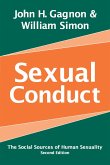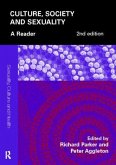The first edition of Sexual Conduct, published in 1973, swiftly became a landmark text in the sociology of sexuality. It went on to profoundly shape the ideas of several generations of scholars and has become the foundation text of what is now known as the "social constructionist" approach to sexuality. The present edition, revised, updated, and containing new introductory and concluding materials, introduces a classic text to a new generation of students and professionals.
Traditional views of human sexuality posit models of man and woman in which biological arrangements are translated into sociocultural imperatives. This is best summarized in the phrase "anatomy is destiny." Consequently, the almost exclusive concern has been with the power of biology and nature in sexual conduct as opposed to understanding the significance and impact of social life. In Sexual Conduct, Gagnon and Simon lucidly argue that sexual activities, of all kinds, may be understood as the outcome of a complex psychosocial process of development. Using the social script theory, the authors trace the ways in which sexuality is learned and fitted into particular moments in the lifecycle and in different modes of behavior.
Sexual Conduct is a major attempt to consider sexuality within a non-biological, social psychological framework. It is a valuable addition to the study of human sexuality, and will be of interest to students of sociology, psychology, psychiatry, social work, and medicine.
Traditional views of human sexuality posit models of man and woman in which biological arrangements are translated into sociocultural imperatives. This is best summarized in the phrase "anatomy is destiny." Consequently, the almost exclusive concern has been with the power of biology and nature in sexual conduct as opposed to understanding the significance and impact of social life. In Sexual Conduct, Gagnon and Simon lucidly argue that sexual activities, of all kinds, may be understood as the outcome of a complex psychosocial process of development. Using the social script theory, the authors trace the ways in which sexuality is learned and fitted into particular moments in the lifecycle and in different modes of behavior.
Sexual Conduct is a major attempt to consider sexuality within a non-biological, social psychological framework. It is a valuable addition to the study of human sexuality, and will be of interest to students of sociology, psychology, psychiatry, social work, and medicine.









